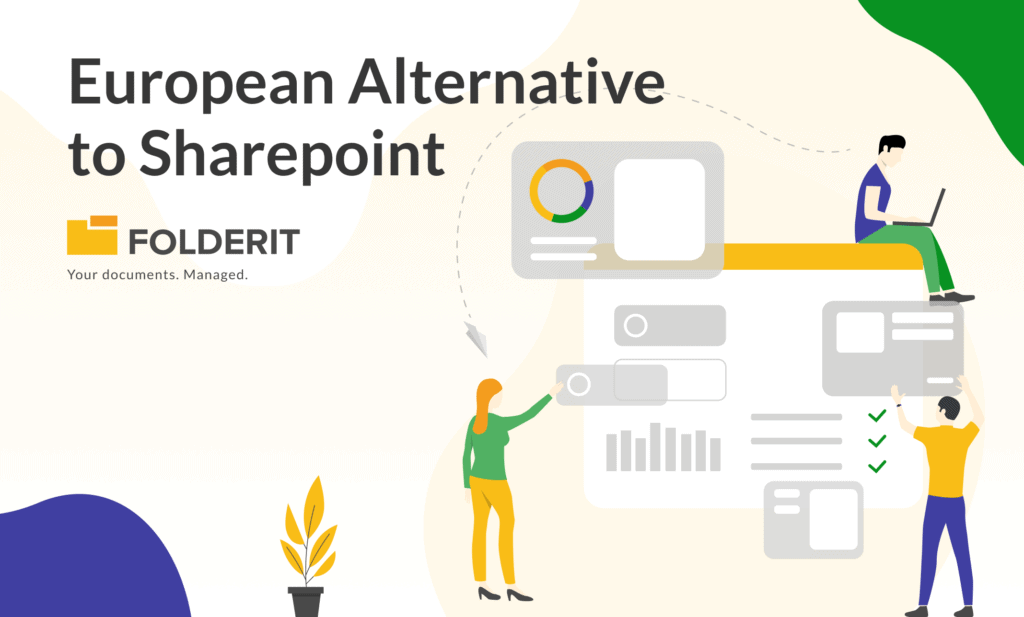Businesses across the board are inundated with data from every direction. Amongst this data deluge, customer information emerges as a pivotal asset, steering companies towards enhanced customer experiences and informed decision-making. Implementing a Customer Information Management (CIM) system, particularly through a Document Management System (DMS), not only safeguards this invaluable asset but also leverages it to carve out a competitive edge in the market.
1. Amplifying Customer Experiences
In a landscape where customer expectations are soaring, personalization becomes the foundation of enhanced customer experiences. Employing a DMS as a CIM tool ensures that every interaction is not just a transaction but a tailored communication that resonates with the customer. Here’s how:
- Personalized Engagements: Automated data management allows businesses to craft communications that echo the individual customer’s preferences and history.
- Proactive Solutions: A holistic view of customer data enables businesses to anticipate and address needs proactively, often before the customer vocalizes them.
- Efficient Issue Resolution: Centralized data ensures that customer issues are not just resolved but resolved in a manner that aligns with their previous interactions and preferences.
2. Elevating Operational Efficiency
The efficiency of operations directly correlates with customer satisfaction and bottom-line results. A DMS, when utilized as a CIM, streamlines operations by:
- Automating Data Management: Minimizing manual data entry not only saves time but also mitigates the risk of human error, ensuring data accuracy.
- Ensuring Data Consistency: A unified platform ensures that every department is on the same page, eliminating discrepancies and enhancing collaborative efforts.
- Quick and Accurate Data Retrieval: A DMS ensures that customer data is not just stored but is easily retrievable, facilitating swift and informed customer interactions.
3. Driving Data-Driven Decisions
In a world where data is king, leveraging it to drive decisions propels businesses towards sustainable growth. Utilizing a DMS for CIM provides:
- In-depth Customer Insights: Understanding customer behaviors and preferences enables businesses to tailor their offerings and communications.
- Effective Segmentation: Grouping customers based on varied criteria ensures that marketing efforts are targeted and yield higher ROI.
- Predictive Analytics: Anticipating future trends and customer behaviors ensures that businesses are always a step ahead in their strategy and offerings.
4. Ensuring Regulatory Compliance and Data Security
Over the last couple of years data breaches have been common in every industry, as such safeguarding customer information is paramount. A DMS facilitates:
- Enhanced Data Security: Implementing stringent security protocols, ensuring that customer data is shielded from unauthorized access and breaches.
- Regulatory Adherence: Automated workflows and audit trails ensure that businesses remain compliant with data protection regulations, safeguarding against legal repercussions.
- Secure Access: Ensuring that only authorized personnel have access to sensitive customer data, thereby maintaining data integrity and confidentiality.
5. Enhancing Customer Retention and Loyalty
Customer loyalty is not just built on quality products but on the entirety of the customer journey and experience. A DMS aids in:
- Consistent Customer Journeys: Ensuring that every interaction with the customer is consistent, building a reliable and trustworthy brand image.
- Rewarding Loyalty: Utilizing data to recognize and reward loyal customers, thereby enhancing customer retention.
- Feedback Utilization: Employing customer feedback to refine offerings and processes, showcasing a brand that values its customers.
6. Facilitating Scalability and Flexibility
As businesses evolve, the ability to scale and adapt becomes crucial. A DMS provides:
- Scalable Solutions: Adapting to the growing volume of customer data and evolving business needs without extensive system overhauls.
- Flexible Access: Enabling teams to access customer data anytime, anywhere, ensuring that remote teams and on-the-go personnel are always connected.
- Adaptable Workflows: Modifying processes to align with changing business strategies and market trends, ensuring that the CIM remains relevant and effective.
A Closer Look at Folderit’s DMS: A Comprehensive Solution for CIM
In the realm of DMS, Folderit emerges as a potent tool, especially when considering it as a CIM solution. Folderit stands out by offering:
- Acknowledgment Workflows: Ensuring that crucial customer-related documents and updates are not just sent but also acknowledged by the concerned personnel.
- Advanced Search Functionality (OCR): Facilitating quick and accurate retrieval of customer data, ensuring that no time is wasted in sifting through information.
- Secure Data Storage: Offering a secure vault for all customer data, ensuring that it is shielded from unauthorized access and potential breaches.
- User-Friendly Interface: Ensuring that the system is accessible and easy to navigate for all users, minimizing the learning curve and enhancing user adoption.
- Automated Alerts: Keeping teams in the loop regarding document modifications, updates, and customer interactions, ensuring that every stakeholder is well-informed.
- Integration Capabilities: Allowing businesses to integrate with other tools and platforms, ensuring that the DMS aligns with existing workflows and systems.
Empowering CIM with Advanced Document Management
Employing a DMS as a CIM tool not only safeguards and streamlines data management, but it also propels businesses towards enhanced customer experiences, operational efficiency, and informed decision-making. As businesses navigate through the digital landscape, adopting a DMS like Folderit ensures that they remain connected, compliant, and customer-centric, steering them towards sustainable growth and elevated customer satisfaction.



